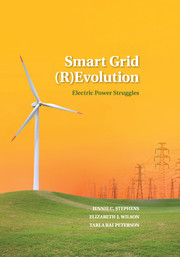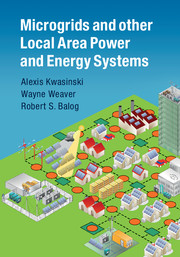Smart Grid (R)Evolution
The term 'smart grid' has become a catch-all phrase to represent the potential benefits of a revamped and more sophisticated electricity system that can fulfil several societal expectations related to enhanced energy efficiency and sustainability. Smart grid promises to enable improved energy management by utilities and by consumers, to provide the ability to integrate higher levels of variable renewable energy into the electric grid, to support the development of microgrids, and to engage citizens in energy management. However, it also comes with potential pitfalls, such as increased cybersecurity vulnerabilities and privacy risks. Although discussions about smart grid have been dominated by technical and economic dimensions, this book takes a sociotechnical systems perspective to explore critical questions shaping energy system transitions. It will be invaluable for advanced students, academic researchers, and energy professionals in a wide range of disciplines, including energy studies, energy policy, environmental science, sustainability science and environmental engineering.
- One of the first authored books to explore the social dimensions of creating an energy smart grid
- Links social and technical aspects of energy system change for those interested in energy transitions
- Written by three experts in energy and sustainability policy
Product details
November 2016Paperback
9781107635296
218 pages
255 × 178 × 11 mm
0.42kg
11 b/w illus.
Available
Table of Contents
- 1. Emerging smart grid struggles
- 2. Promises and pitfalls of smart grid
- 3. Technologies of smart grid
- 4. Societal actors and dominant smart grid visions
- 5. Smart meters measuring, monitoring and managing electricity
- 6. Wind on the wires
- 7. Community and small-scale grid innovation
- 8. A changing climate and a smarter grid: critical linkages
- 9. Smart grid revolution, evolution, both or neither.





